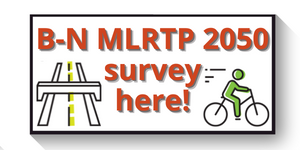The Transportation Advisory Committee (TAC) consists of representatives from local transit providers. These organizations include the public transit providers Connect Transit and SHOW BUS. Also participating are institutional or non-profit agencies that provide transportation services to agency clients, people with specific needs and sometimes to the general public, and social service agencies working within these communities. This group of providers and agencies includes Marcfirst, Homes of Hope, Faith in Action, Advocate-BroMenn Adult Day Services, the LIFE Center for Independent Living, the East Central Illinois Area Agency on Aging, and provisionally, the YWCA of McLean County.
The Transportation Advisory Committee is a forum for cooperation and the exchange of vital information between all of its members. In recent years the group has coordinated mandatory training for drivers and other personnel, arranged shared or contracted service, coordinated service with the public transit providers, and worked together to adapt to changing state funding and program requirements.
The Transportation Advisory Committee is the first step for agencies seeking grants from the annual Illinois Department of Transportation Consolidated Vehicle Purchase program. This is the only IDOT grant using federal funds for transportation programs keyed to seniors, people with disabilities, non-emergency medical transportation and other needed paratransit services. The CVP process allows agencies to apply for replacement and expansion vehicles to provide their services, having met certain criteria to support their vehicle needs. The TAC reviews and endorses CVP applications, and refers their recommendations to the Transportation Technical Committee. The Technical Committee forwards approved applications to the Policy Committee for final action and referral to the IDOT Office of Intermodal Project Implementation for consideration.
Significant impacts on operations have resulted from the state’s attempts to introduce statewide managed care operations, which often include transportation within the framework of the Americans With Disabilities Act. The TAC participants, particularly the smaller agencies, are now required to conform their contracting and audit procedures with the Illinois Grant Accountability and Transparency Act (GATA). Discussions within the TAC have assisted Committee members in responding to the technical process created around the GATA legislation.
Meeting Materials




